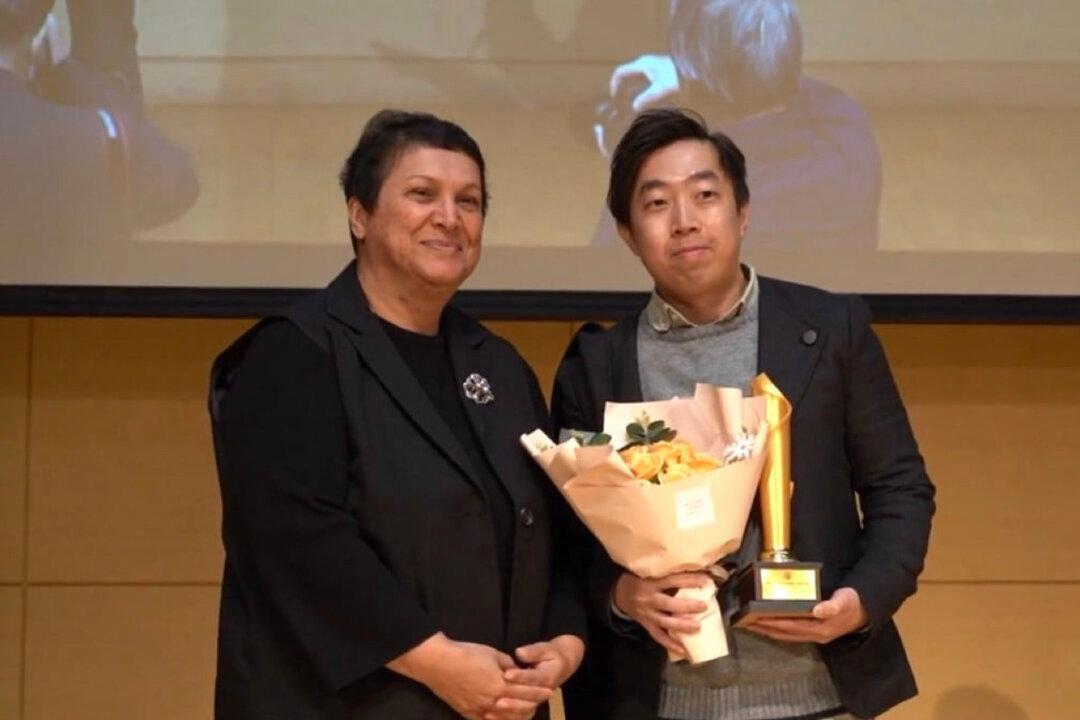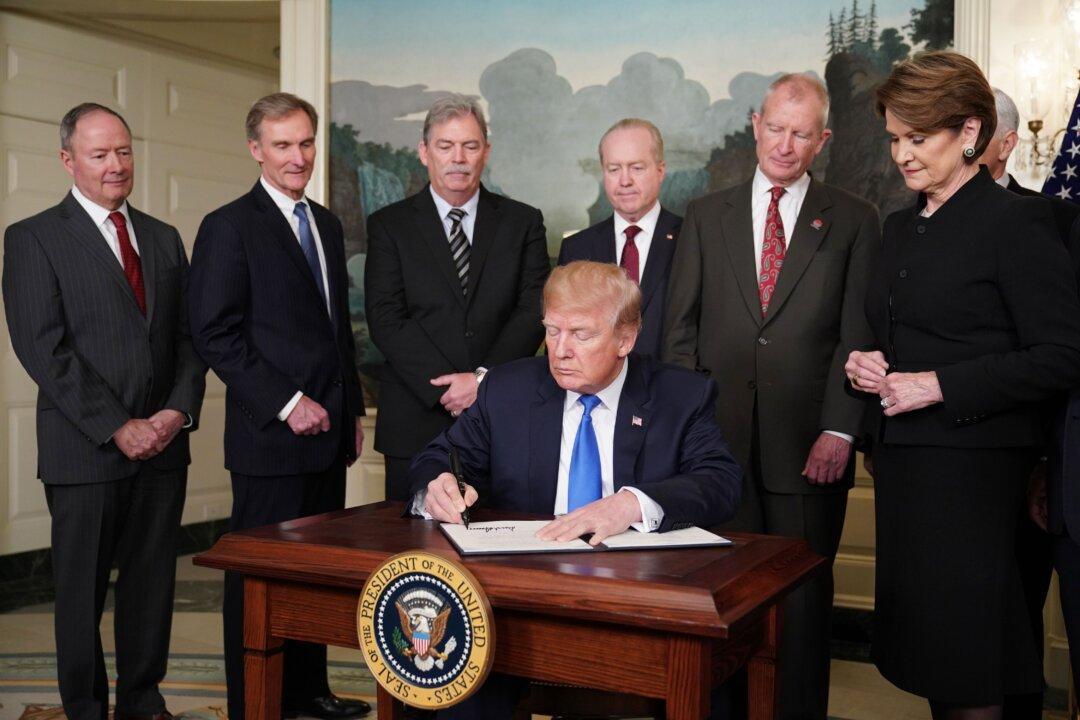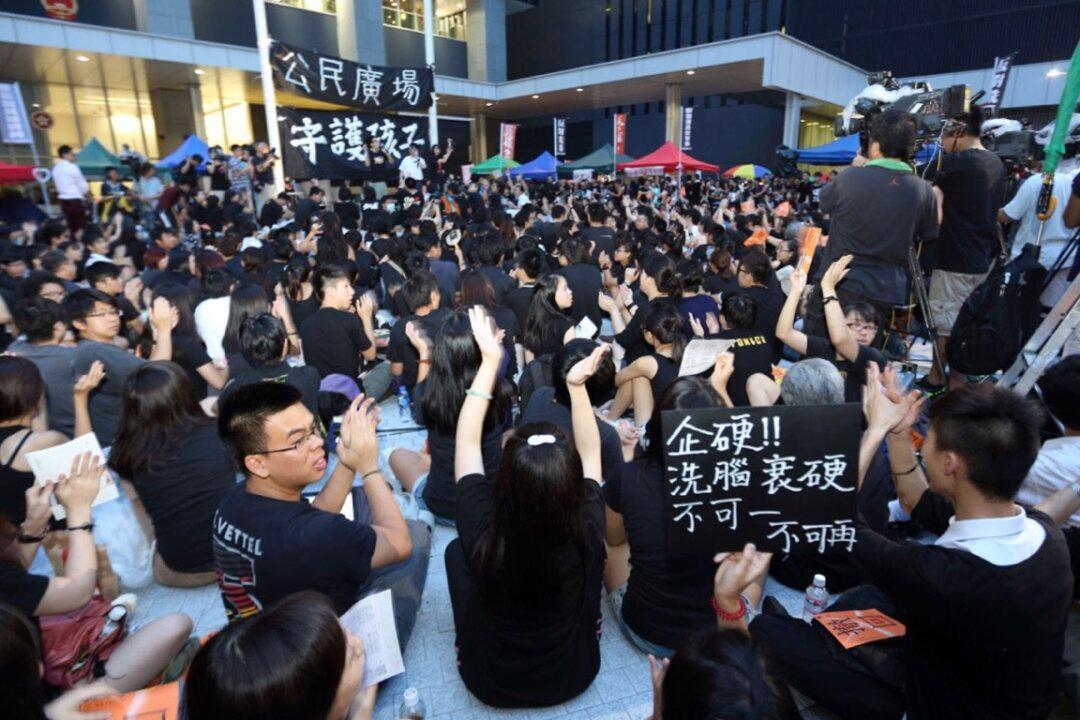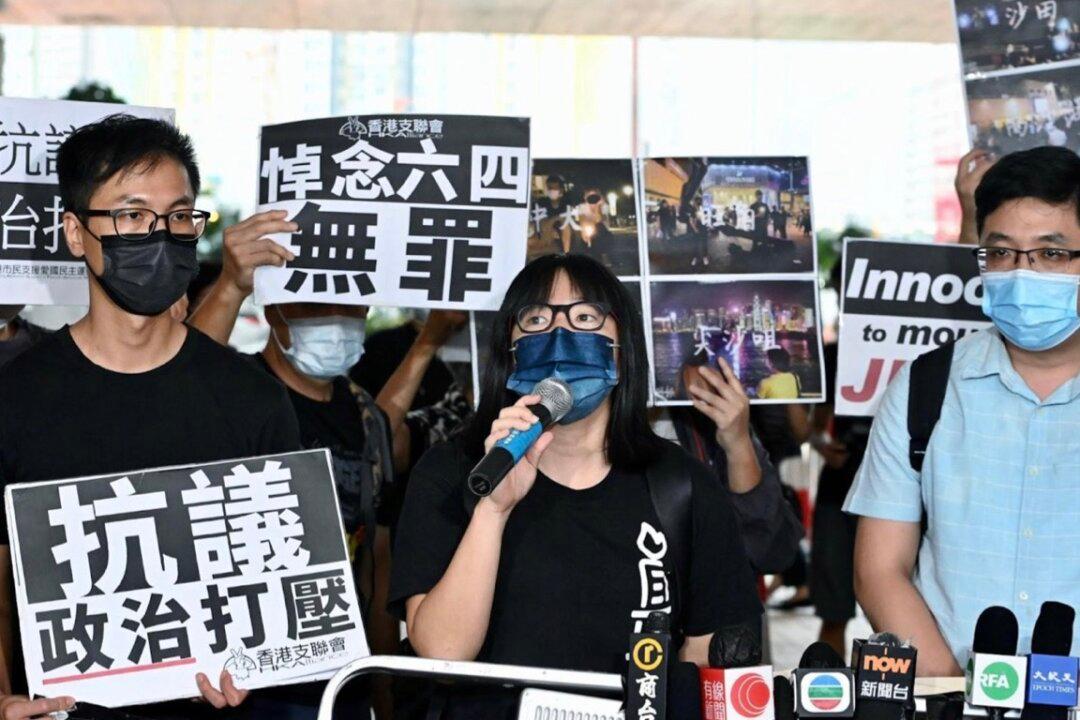On Nov. 17, the Liberty International Movie Festival, with its theme of freedom and human rights, kicked off in Seoul, Korea. This time, more than 150 films from over 40 countries were shortlisted. The Hong Kong film “Entrepot“ won the Best Film Award and the Best Newcomer Director Award.
“Entrepot” consists of three parts, each describing the situation in Hong Kong in 2021 after its loss of freedoms. It focuses on the helplessness faced by the younger generation when coming across the new reality of life, such as, the wave of people leaving the city, depression, and pondering the meaning of survival.
Director Jacky Cheung Hoi-kit said that although he won the highest award, it is still unknown whether the film will be shown in Hong Kong cinemas under Hong Kong’s new film regulations.
Cheung commented: “Although I won a big prize, the biggest irony is, it is still not sure whether it can be shown in Hong Kong. But anyway, my axiom has always been what I always feel. That I don’t think we should forget for a society to prosper, the most crucial element is the value of freedom and the value of human rights.”
“Entrepot” trailer on Youtube.
He said that most of the films in circulation focus primarily on the events of 2019; but that what happened in the following two years, such as the almost complete dissolution of civil society, was even more profound. “Entrepot’s” prime objective is to try to take account of the current feeling among Hong Kong residents, to deal with their sense of helplessness, and to find where Hong Kong is heading.
Many Locally Made Films Banned Because of the NSL
During the anti-extradition movement in Hong Kong in 2019, many filmmakers recorded the street protests that involved millions of people, and the profound changes after the handover of sovereignty to China. Most of them cannot be shown in Hong Kong after the Hong Kong version of the National Security Law (NSL) was passed in 2020.The most well-known among them is the documentary “Revolution of Our Times,” directed by Kiwi Chow Kwun-wai, which premiered at the 74th Cannes Film Festival on July 16, 2021. The film takes Hong Kong’s anti-extradition movement as its theme, and through the perspectives of seven diverse groups of protesters, shows the social background of the anti-extradition movement and the “down in the heart” feelings of the participants. The film won the Best Documentary Award at the 58th Golden Horse Awards and was released in many countries and regions around the world, where tickets quickly sold out.
The title of the film came from the well-known slogan used during the anti-extradition movement, “Liberate Hong Kong, Revolution of the Time.” The slogan was judged by the Hong Kong government as violating the NSL, but nevertheless, it did appear and was repeatedly heard within the documentary.
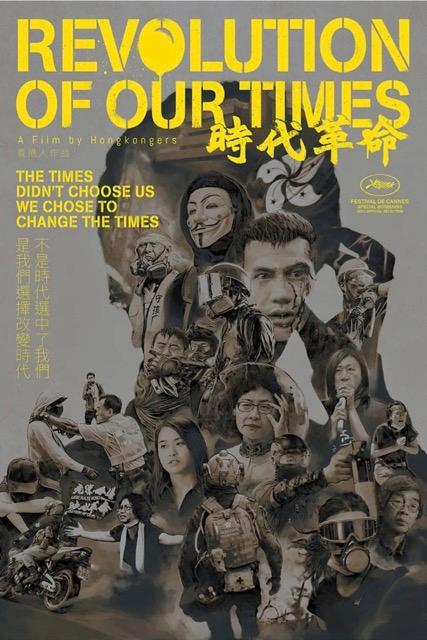
Poster of “Revolution of Our Times,” during its 2021 global tour. Courtesy of Kiwi Chow
Another film is “Love in the Time of Revolution,” by rookie director Ngan Chi-sing, which recently toured globally. The film takes the stories of some laypeople of different ethnicities and backgrounds, who are dedicated to the movement and give with all the love in their hearts. However, the director had to go abroad to have his film shown.
Anti-Extradition Films Win International Awards, Not Released in Hong Kong
A blanket ban was in place for other anti-extradition movement-related documentaries released before the Hong Kong version of the NSL, such as, “Inside the Red Brick Wall,” “Taking back the Legislature,” ”Do Not Split,” and others. All of them were eventually banned in Hong Kong.“Inside the Red Brick Wall” was given the Best Editing Award at the Amsterdam International Documentary Film Festival, the Best Film Award at the Hong Kong Film Critics Society Awards, and was selected to serve as the introductory film by the 12th Taiwan International Documentary Film Festival (TIDFF) in 2021.
On May 6, 2021, “Taking Back the Legislature” and “Inside the Red Brick Wall” each won the Chinese Documentary Award at the 12th Taiwan International Documentary Film Festival. In October of the same year, “Inside the Red Brick Wall” won at the Yamagata International Documentary Film Festival, in the Robert and Frances Flaherty Prize international competition section, the biggest honour of the film festival. It was the first time a Hong Kong film won the award in over 30 years.
Despite all these honours abroad, the screenings of “Taking Back the Legislature” and “Inside the Red Brick Wall” have been stalled under Hong Kong’s increasingly stringent film censorship protocols.
From Jan. 10 to 22, 2020, “Taking Back the Legislature” and “Inside the Red Brick Wall” premiered at the 13th Hong Kong Independent Film Festival. However, in July of the same year, after the NSL for Hong Kong was passed, such documentaries were severely scrutinized by the Office for Film, Newspaper and Article Administration (OFNNA) before they were released in Hong Kong.
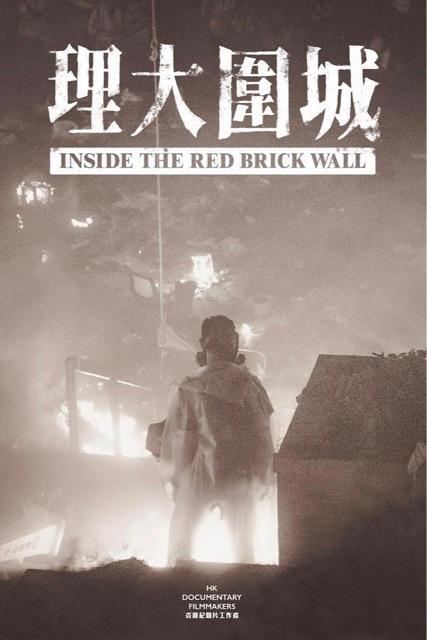
“Inside the Red Brick Wall” poster Courtesy Ying E Chi
http://docworker.blogspot.com/2021/01/blog-post_53.html
“Inside the Red Brick Wall” was originally scheduled to be screened at the Hong Kong Arts Centre on the evenings of 21 and 22 Sept., 2020. But the OFNNA placed additional requirements to sanction its release. It first asked for the addition of warning statements at the beginning of the film, including “it may constitute a criminal offence under the existing laws,” and “part of the content or comments may also be unsubstantiated or misleading.” Moreover, just two hours before it opened on Sept. 21, the distributor, Ying E Chi Cinema, received the OFNNA certificate that rated “Inside the Red Brick Wall” as a Level III film, meaning people under 18 are prohibited from viewing it, and the distributor needs to provide a temporary refund arrangement.
In March 2021, Golden Scene Cinema had originally scheduled two showings of “Inside the Red Brick Wall” on the evenings of March 15 and 21, which triggered long queues to buy tickets. However, the Chinese Communist Party (CCP) mouthpiece Wen Wei Po claimed that the documentary spread “national hatred” and violated the “Film Censorship Ordinances” and the “Hong Kong National Security Law,” urging the OFNNA to ban it. On March 15, Golden Scene Cinema suddenly issued a notice cancelling the screening, and cited “to avoid causing unnecessary misunderstandings.”
On March 17, the Hong Kong Arts Centre also announced the temporary cancellation of the re-screening of “Inside the Red Brick Wall.” The Arts Centre said it was a ”very difficult decision.”
Local HK Films Lose Creative Space Post Handover
Hong Kong’s film industry was once in its prime and the 1980s were the glory days. The industry was flooded with star actors, and a wide range of content was explored and flourished. For example, Stephen Chow’s nonsensical comedy, Tsui Hark’s martial arts film series, John Woo’s violence cum aesthetics, and Wong Kar-wai’s artistic films. Many of the films have won awards at international film festivals, and box office records were repeatedly broken. With its ever-increasing influence, the industry reached an unprecedented peak, and Hong Kong became known as the “Hollywood of the East.” The Hong Kong Film Award is one of the highest honours among the Chinese-language film awards in the world. The annual award ceremony was broadcast live on both sides of the Taiwan Strait, as well as in other parts of the world.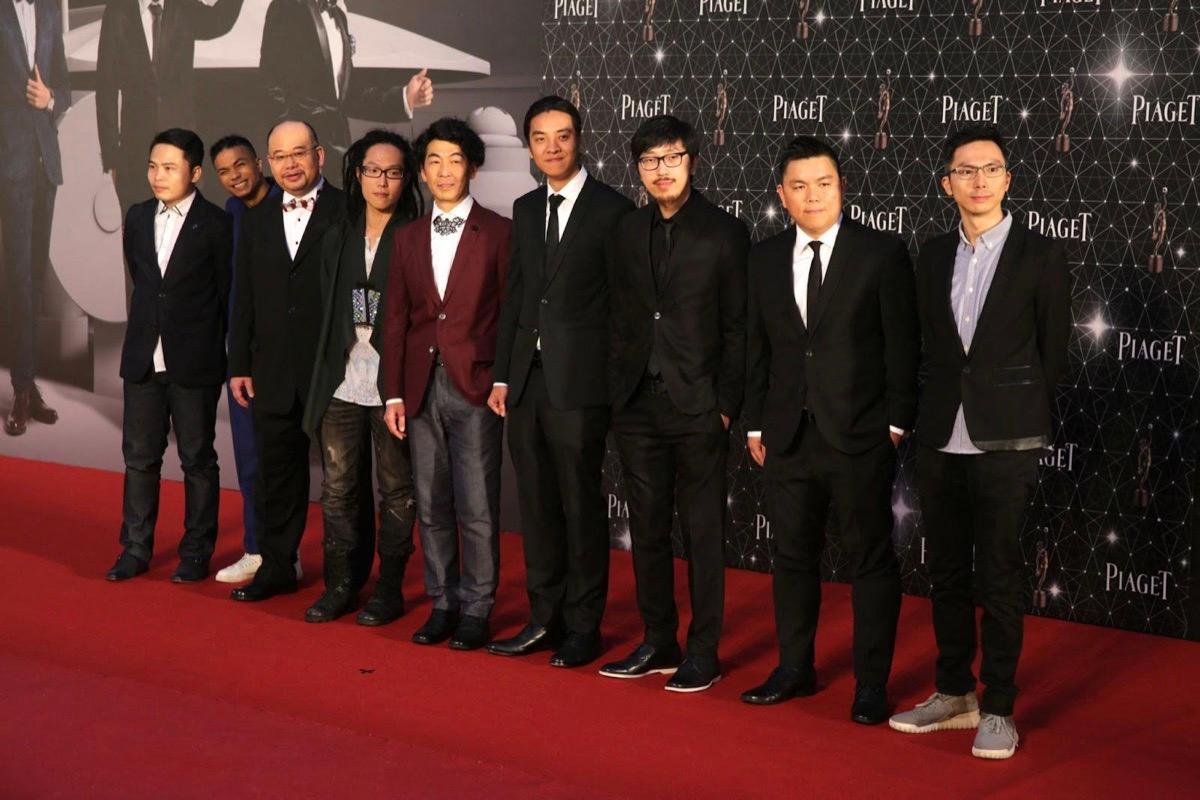
The cast and crew of the controversial Hong Kong film "Ten Years," posing on the red carpet at the 35th Hong Kong Film Awards on April 3, 2016. Isaac Lawrence/AFP
After the handover of sovereignty in 1997, the CCP and Hong Kong signed the Closer Economic Partnership Arrangement (CEPA), and most of the actors and backstage staff who were active in the Hong Kong film industry went north to participate in filming in mainland China. Big-budget Hong Kong film productions were forced to rely on co-production partnerships to enter the mainland Chinese market. As China’s film censorship system is much tighter than that of Hong Kong, most of the productions gradually lost their creativity and imagination.
Gradually, the Hong Kong film industry has moved from prosperity to decline. The directors who stayed in Hong Kong could only make low-cost, small-scale, productions that primarily focused on content that was close to real life, and consequently their output decreased year by year.
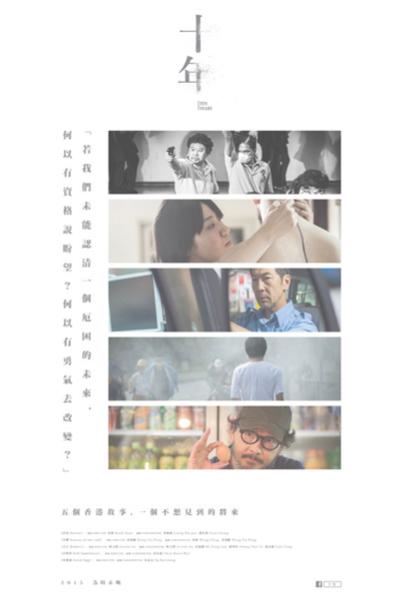
The poster for "Ten Years." Courtesy of Ten Years Studio
In December 2015, “Ten Years,” a film that predicted the loss of human rights, democracy, and freedom in Hong Kong, was released in that city. Due to the overwhelming response, it was released in different theatres one after another, with a cumulative box office of over HK$6 million (about $ 770,000). It won the Best Film award at the 35th Hong Kong Film Awards and also received the award as the Recommended Film at the 2015 Asian Film Festival.
The CCP then completely banned the film and ordered major online platforms in mainland China to ban the live broadcast and rebroadcast of the Golden Horse Awards and the Hong Kong Film Awards, preventing at least tens of millions of viewers from watching the 35th Hong Kong Film Awards.
One of the film’s directors, Kiwi Chow Kwun-wai, was criticized by the CCP’s official media for making the film, and he lost many job opportunities after that. But Chow did not change his focus because of this and later filmed “Revolution of the Times,” which won even higher recognition in the film industry.

HK screenwriter and director Kiwi Chow directed one of the stories, "Self-immolators," for the 2015 film "Ten Years," which predicted Hong Kong's loss of freedoms, and was voted The Best Film at the Hong Kong Film Awards. It was subsequently banned by the CCP. Chow’s next film, "Revolution of the Times," which documented the anti-extradition movement, was voted the Best Documentary at the 58th Golden Horse Awards. Kwan Wing-tzen/The Epoch Times
NTDTV reporter Kim Yeon contributed to this article
